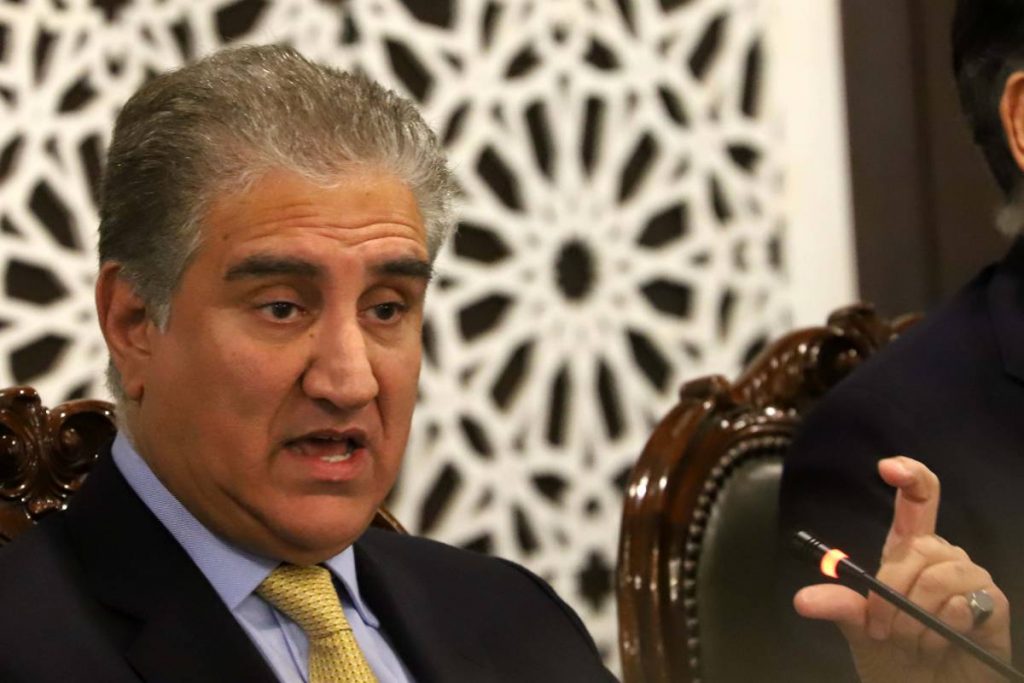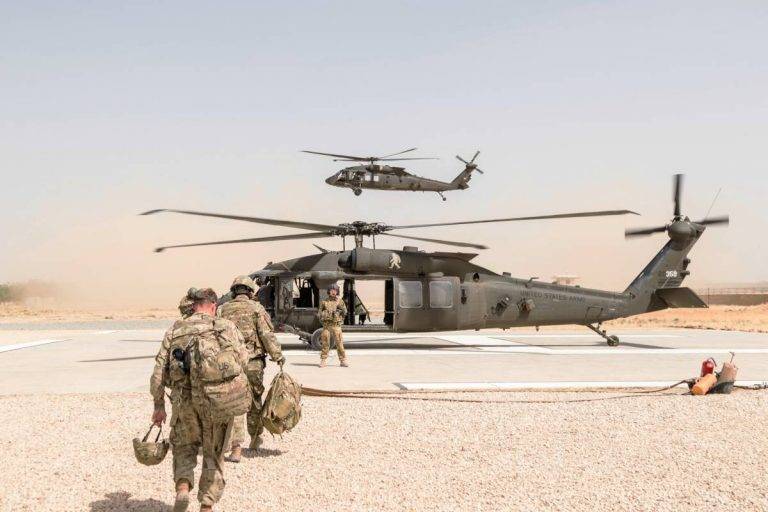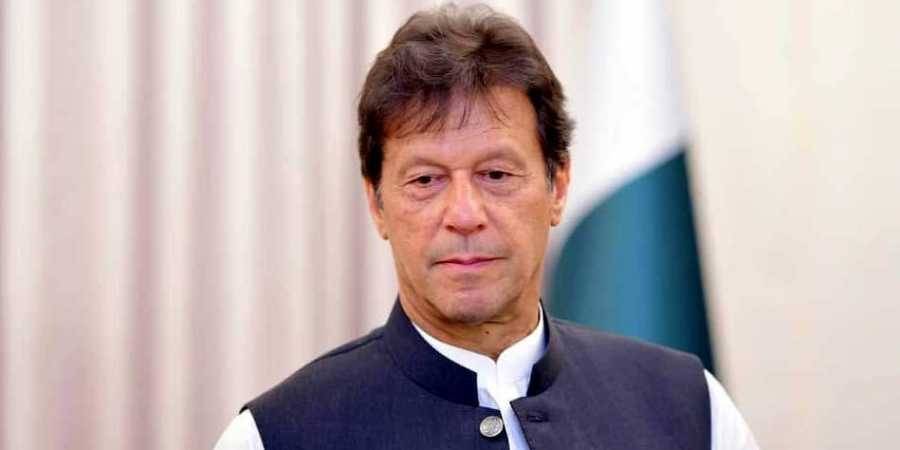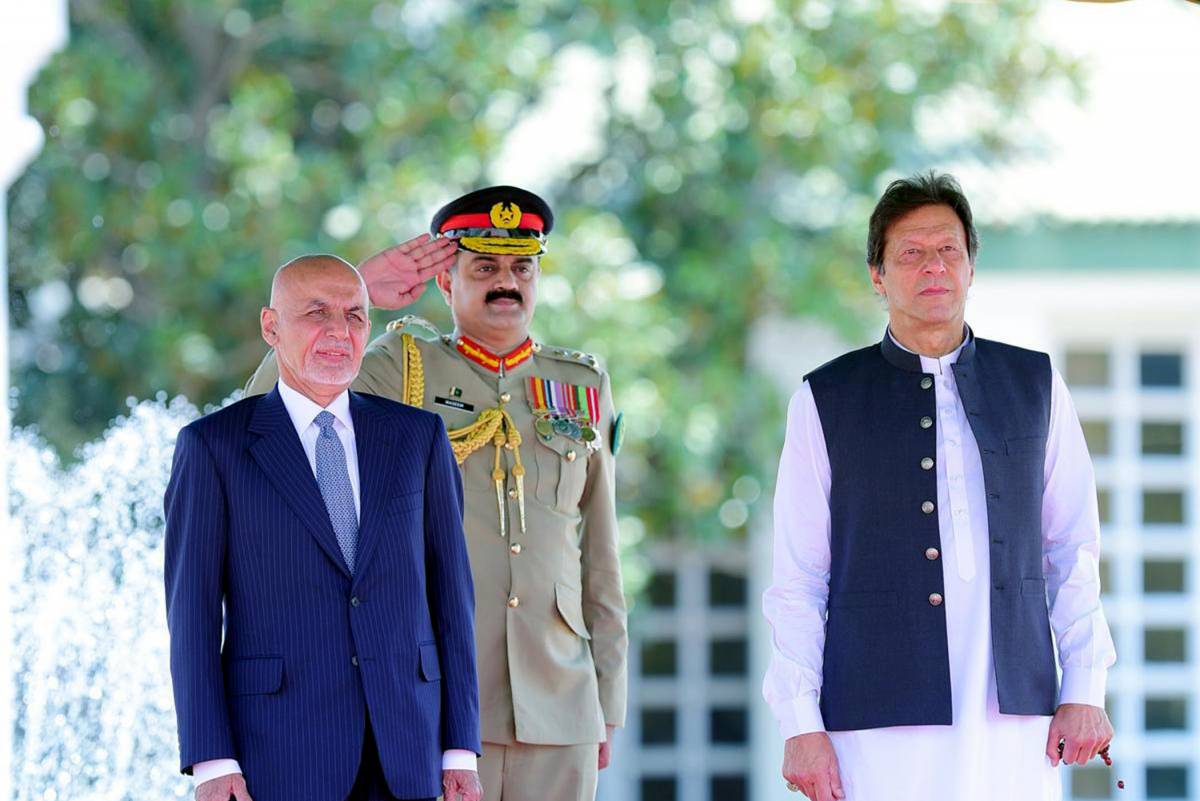Afghanistan is routinely accusing Pakistan of sponsoring the Taliban attacks. Islamabad denies this with both Khan and Qureshi insisting that this is Afghanistan’s “internal strife”, which taking credit for its diplomacy that “brought the Taliban to the talks table” with the US … writes Dr Sakariya Kareem
A decade after being found hosting, or hiding, Al Qaida leader Osama bin Laden, Pakistan is still not sure whether he was a ‘martyr’ or an internationally wanted ‘terrorist’.
A fresh debate has been re-ignited because none less than Prime Minister Imran Khan who called Osama a ‘martyr’ and his Foreign Minister Shah Mahmood Qureshi, who claimed that the boss was ‘misquoted’, himself failed to call Osama a ‘terrorist’. He thought he was being smart, but did it clumsily, when saying: ‘I will let that pass.”

Now, they are being attacked from both ends of the political spectrum at home and the world outside. The conservatives at home are glad, while the world outside wants to know where Pakistan stands on this question that its own leaders rake up from time to time.
“Pakistan’s top leadership needs to be absolutely clear when it comes to describing fighters like bin Laden,” Dawn newspaper said in its June 22, 2021 editorial, adding: “Mr Qureshi could have used this opportunity to clearly state that Pakistan considers the late Al Qaeda mastermind a terrorist. However, his non-committal comments sent the wrong message to a global audience.”
To recall, bin Laden was located and eliminated by an American special forces’ team on 2nd May, 2011 in Abbottabad, a key garrison town in the heart of Pakistan. Till today, there is no final word on how, why and for how long Osama was there, with or without knowledge and support of successive governments in Pakistan.
The newspaper laments what is known to the world, but is ignored, beyond mouthing words of concern and outrage. “Osama bin Laden was an ideological hero to many militants in Pakistan, who had no qualms about taking on the state and spilling the blood of the innocent. Few would disagree that bin Laden was the most influential religious militant of the current era, inspiring terrorist groups across the world with his ideology and tactics. Therefore, there should be no ‘ifs’ or ‘buts’ and the message our government should be sending to the world is that Osama bin Laden was very much a terrorist.” A cursory scanning of Pakistan’s media shows that there are not too many media outlets saying this and members of the intelligentsia are generally silent.
The irony of Pakistan’s prime minister calling Osama a ‘martyr’ is not lost when you see Pakistan’s dual role in hunting with the hounds (the Taliban), claiming to distance itself from the “internal strife”, yet taken an anti-US stance and seeking reparations for facilitating their drawdown
And it is not about Osama alone. Pakistani media reports are currently carrying daily reports of pro-active police investigations into a bomb blast earlier this week in Lahore’s Johar Town locality where three people were killed. Politicians and celebrities alike are competing on the social media to express outrage and concern, although the place is not a seat of power or mass gathering, nor is the casualty alarmingly high considering Pakistan’s high-risk sectarian violence.
The unstated reason for these sympathetic outbursts is that the blast took place near the home of Lashkar-e-Toyaba founder and proscribed militant leader, Hafeez Saeed. Saeed, himself, is away, jailed on conviction of money-laundering charge and funnelling funds to terror outfits.
The question to Qureshi was from Tolo News, an Afghanistan media outlet, put by an intrepid interviewer come to Islamabad at a time when the government in Kabul is under tremendous pressure from the Afghan Taliban. They are conquering vast swathes of territory even as the US-led foreign troops begin to evacuate. Afghanistan is routinely accusing Pakistan of sponsoring the Taliban attacks. Islamabad denies this with both Khan and Qureshi insisting that this is Afghanistan’s “internal strife”, which taking credit for its diplomacy that “brought the Taliban to the talks table” with the US.
The irony of Pakistan’s prime minister calling Osama a ‘martyr’ is not lost when you see Pakistan’s dual role in hunting with the hounds (the Taliban), claiming to distance itself from the “internal strife”, yet taken an anti-US stance and seeking reparations for facilitating their drawdown.

This is reflected in Pakistan’s current anti-American stance. “I will never forget how we Pakistanis were embarrassed when the Americans came into Abbottabad and killed Osama Bin Laden, martyred him,” Khan said. He used the word “shaheed” – a reverential Arabic term for a martyr of Islam.
Whether or not Pakistan supports the Taliban’s ascendance, the world community are concerned at this attempt at military solution that seems to succeed. Pakistan, while denying any interference or military support to the Taliban, is like the proverbial cat licking its whiskers after drinking the spilt milk.
The timing of the debate is strange, but also significant. Besides fast-moving developments in Afghanistan next-door, and a meeting of the Financial Task Force (FATF), the body that is scrutinising Pakistan’s role in fomenting terrorism. But rather than curb a public debate on Osama, the government seems to encourage this poking of fingers into the eyes of the Americans and other NATO members who are evacuating.
This is to score political brownies at home, according to writer Zahid Husain who has criticised both Khan and Qureshi of mixing their diplomacy in the region to boost their support base among the militants. Refusal to condemn Osama is only one of the pointers to this.
The world community needs to see this debate as a trend on how Pakistan treats militants as its ‘assets’. Pakistan’s former envoy to the United States Abida Hussain last year claimed in an interview to Geo TV, a local private news channel, that Osama Bin Laden had “supported and funded” Nawaz Sharif, the three-times prime minister now in exile. She may know since she served as a minister in one of his governments.

Imran Khan’s ‘martyr’ comment should also cause a flash-back. General Pervez Musharaf used to call him “Taleban Khan” for his known sympathy for the militants. But it was during Musharraf’s own tenure that Osama made his way, after the Taliban were ousted from Kabul in 2001,moving out of Afghanistan to the tribal land on the border with Pakistan and eventually, to the “safe house” in Abbottabad.
READ MORE: UN session: Pakistan ramps up propaganda on J&K
READ MORE: China’s grip on Sri Lanka sparks concerns

